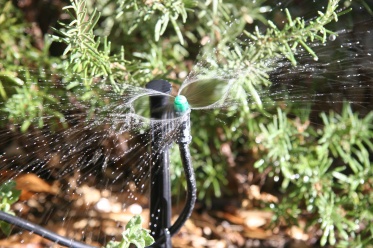Fall will turn into winter this month. It may not always be the most comfortable time to be planting anything in your landscape, but it is a great time for the plants. Trees and shrubs are completely dormant now, so the concept of transplant shock does not apply. So, tree planting especially can continue during this month. And I’m sure special pricing can be found!
Here are a few tips on winter houseplant care. When the heat goes on and the daylight becomes shorter, the best light source is the brightest source in your house. Day light is short this time of year, so direct light will NOT burn plants this time of year. The ideal temperatures for foliage plants are 68-70 degrees. Remember, windowsill locations are much colder during the winter and plants may need to be moved to prevent them from getting chilled. The amount of water the houseplants need declines during winter, so increase the amount of time between watering. Reduce fertilizing as well.
· Use caution when spreading salt or calcium on ice or snow packed walks or driveways. Salt can damage lawns and plantings; calcium is much safer to use. Be sure to designate areas for piling snow from shoveling and plowing in advance to prevent damage to trees, shrubs and lawns.
Again, I wish you and your family a very Blessed Christmas season. Let’s get to work on planning that beautiful garden scene for next year!
See you in the Garden…
Sandi Hillermann Mcdonald




























 Water conservation is of the utmost importance during our dry summer months. Water where it counts, at the roots, not the leaves. Drip irrigation systems in landscape beds do wonders for water conservation and are easy for the homeowner to install. Trees and shrubs would also benefit from a deep root watering this time of year. You can use a deep root feeder (without the fertilizer) for this purpose. Water plants around the drip line for best success. Doing this every 2-3 weeks is beneficial. When you mow your grass, cut it less frequently and at a higher level. Longer grass blades shade the soil and conserve moisture. Plant drought tolerant, native plants where possible.
Water conservation is of the utmost importance during our dry summer months. Water where it counts, at the roots, not the leaves. Drip irrigation systems in landscape beds do wonders for water conservation and are easy for the homeowner to install. Trees and shrubs would also benefit from a deep root watering this time of year. You can use a deep root feeder (without the fertilizer) for this purpose. Water plants around the drip line for best success. Doing this every 2-3 weeks is beneficial. When you mow your grass, cut it less frequently and at a higher level. Longer grass blades shade the soil and conserve moisture. Plant drought tolerant, native plants where possible.

